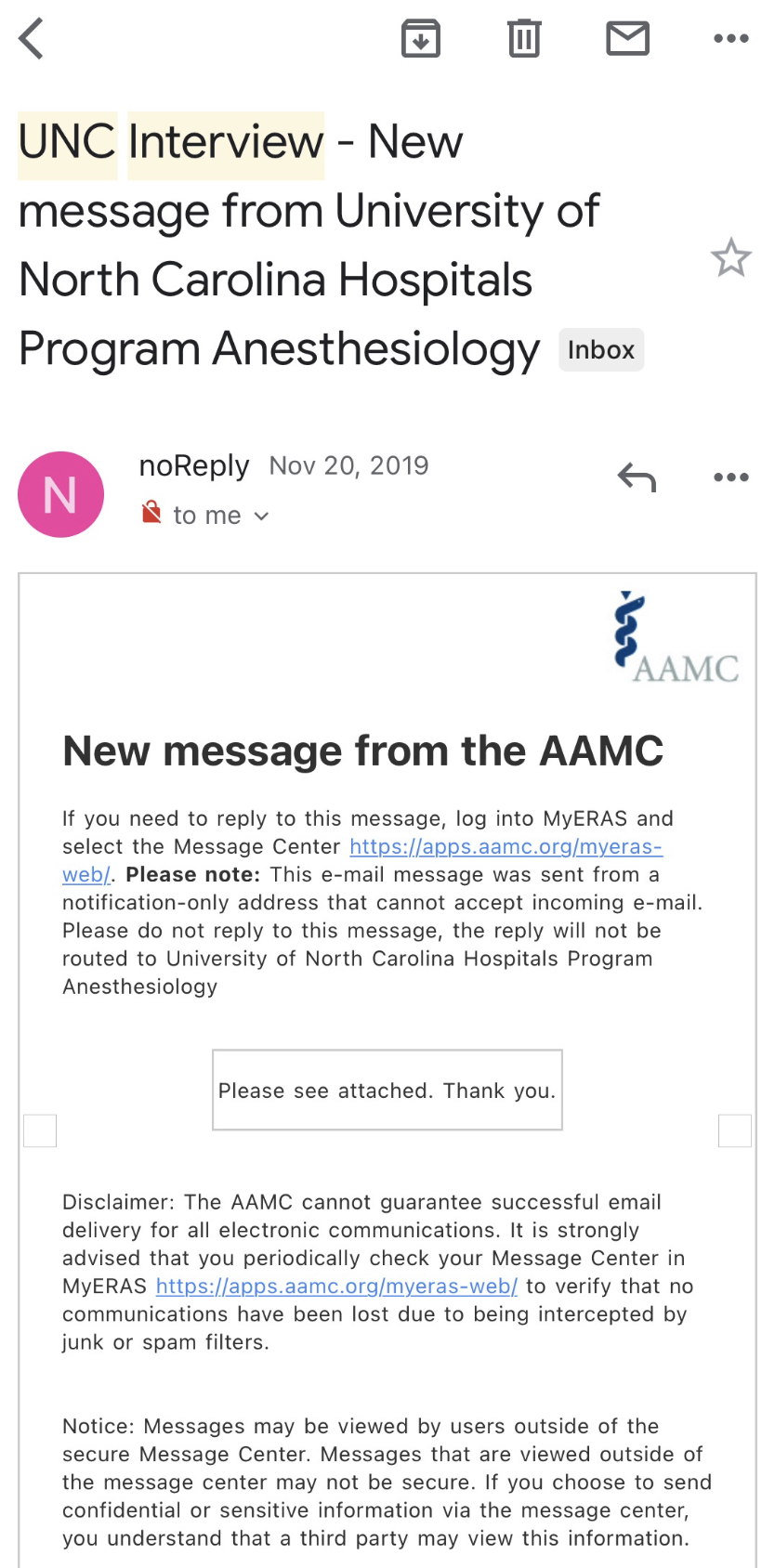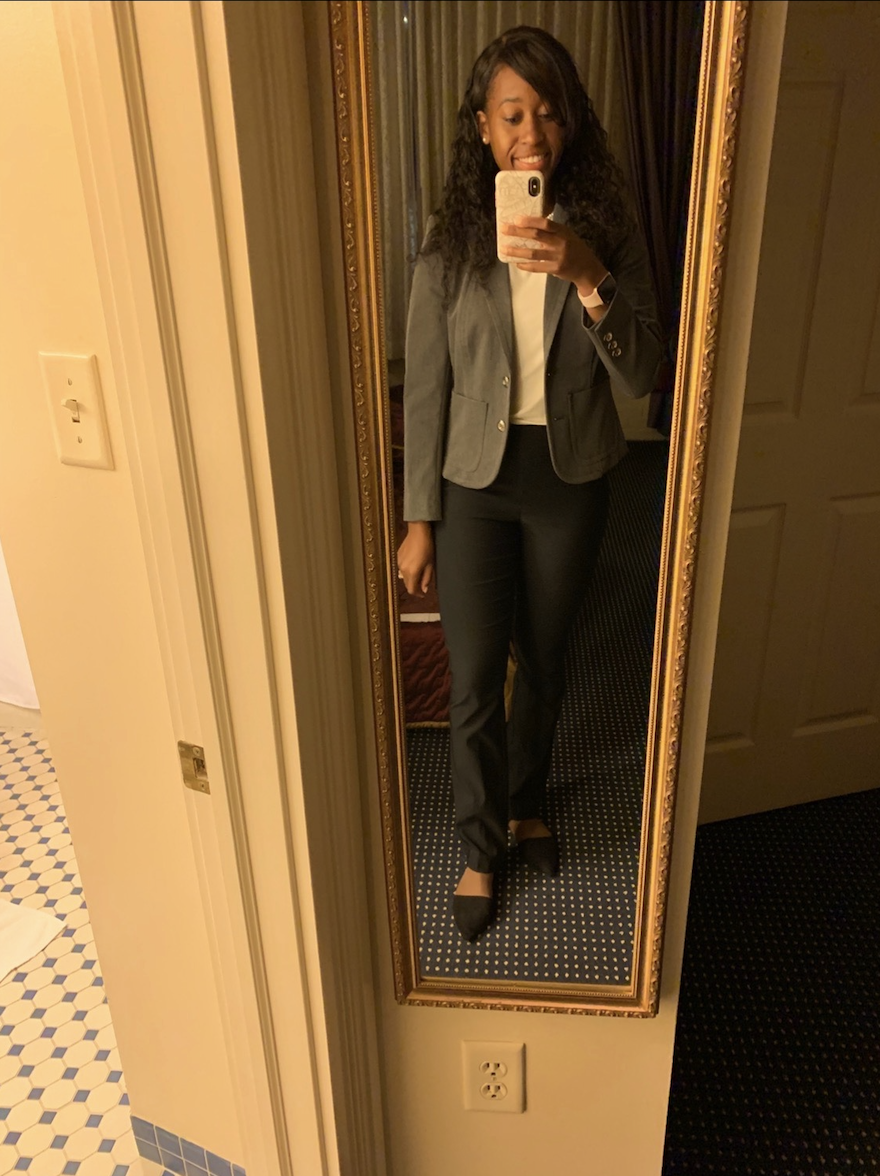How to prepare for residency interviews. September marks an exciting time for fourth-year med students life because it’s residency application submission time! For many medical students residency interviews are the first real “job“ interview they’ve ever had. You may have interviewed during med school but preparing for residency interviews are a little bit different.
The Interview starts with the invitation

We’ve all heard this before but the interview starts with the invitation. It’s vital to turn on your phone/email notifications in order to respond immediately to secure your residency interview spot. It sounds crazy but interview spots can be taken within a matter of seconds to minutes. Nowadays there are several automated scheduling systems that make this process run more smoothly. BUT some places are still “old school” and will require you to respond to an email formally.
Which leads me to my second point keep all of your communication formal. Whether that be via email, telephone, on zoom or in person. It doesn’t matter if you’re speaking with the chair of the program or to the program coordinator have respect for everyone you encounter. You need to be professional and follow any and all instructions given. Prior to sending off any form of communication make sure you double check yourself for any grammatical errors.
Preparation is key
In order to shine on your interview day you’re going to have to do some homework prior to the big day. When I was interviewing I researched common residency interview questions to get an idea of what I might be asked. I even created a word document with common residency interview questions and typed out my responses to each question. I used this document to get a basis for what I generally wanted to convey. Check out my blog post on residency interview questions under my education section for more on this topic.
Practice practice practice
Practice your general responses to these questions out loud. Answering each question out loud and in front of a mirror. You will be surprised at some of the odd behaviors and gestures you make when you’re in the hot seat. Once I was confident with some of my general answers to these questions I recruited my husband and mother to simulate mock interviews. In the actual interview it’s OK to pause for a moment after being asked a question to gather your thoughts. It’s also OK if you have fumbled, just stop, take a deep breath, gather your thoughts, and keep on moving. It is important to note that you do not want to script your responses.
I talked about this in a previous post on applying to residency but I just want to reiterate this here make sure to be able to answer anything including on your application. Even if asked about a shadowing or volunteering experience that happened years ago.
At the end of the interview the interviewer always gives you time to ask questions. Make sure you have some questions to ask. For me I reviewed the residency programs website the night before my interview or a few days before and wrote down a few questions that came to mind. I found this helpful because the information was fresh in my head. For more information on this see my residency interview question post.
The pre residency interview dinner
I know things may have changed during this Covid error but back when I interviewed in 2019 – 2020 we had in person pre-interview dinners. For those of you who are not familiar with this it’s a great opportunity for the applicants to me current residents and of course other applicants. The dinner typically takes place the night prior to the interview. Usually on your interview invitation they will tell you the attire for the pre-interview dinner. I would dress according to their suggestion which is usually casual-business casual.
Basically this dinner was created to get the truth from current residents about the program. Come prepared to the dinner with questions such as about the call schedule, attending conferences, research, vacations, moonlighting and etc. The residents are the best people to ask all of these questions.
Many of these dinners include free alcoholic beverages. I caution applicants to avoid overdoing it with the alcohol. Being a little too friendly and too loud after a few too many drinks does not look good for you. Residents are always looking out for their program and they will not hesitate to speak up to their program director or other committee members about unprofessional or questionable behavior. For me I am naturally not a huge drinker and during this time I was actually pregnant so I was not partaking in this. If you don’t drink don’t feel pressured to doso, it’s OK to respect your own values.
Timeliness
It’s important to arrive early to your interview day so that you can avoid any traffic delays, parking issues, or getting lost. Interviewers understand weather disruptions and travel delays. But showing up late for many other reasons is just not acceptable. But don’t fret many of my interviews last year offered shuttle buses for the applicants and so all you had to do was meet at a certain time in the lobby of the hotel and hop on the shuttle. How to prepare for residency interviews.
Residency interview attire
Professional dress. You don’t have to break the bank in order to obtain a professional suit. But it is extremely important to dress professionally at each interview. Personally for me I had two different suits they were both pants suits. I liked this because if one of my suits was at the dry cleaners I could easily use the other suit without stressing. I actually had multiple interviewers and residency coordinator‘s praise the colors of my suits. How to prepare for residency interviews. I wore either a dark gray or navy suit, both were simple but slightly different compared to the standard black suit. See example photo below.
Pack your suit in your carry-on. You don’t want to be that applicant that’s scrambling the night before the interview to find a new suit because your checked bag was lost at the airport. For those of you who are currently doing Zoom interviews you will not have to worry about this haha. Please see my post on zoom interviews for additional tips.
Wear shoes that you can walk in. This comment is mostly for women but this also goes for men. Most of the interviews that I went on included a hospital tour. I vividly recall one hospital tour almost lasting three hours long! So it’s best to be practical and comfortable versus super cute.

Post interview communication
I remember going online and reading many posts about whether to send the thank you email, paper thank you letters, or to send nothing at all. Initially I ended up going with sending thank you emails but ultimately I didn’t do it due to the arduous nature of interviewing.
I interviewed at programs across the whole country including transitional programs in addition to anesthesiology programs, so overall I didn’t feel like I could send meaningful follow up correspondence to everyone. I will note that there may be value in post interview correspondence if that is your number one program or perhaps if you don’t have very many interviews just as examples. How to prepare for residency interviews.
Don’t forget to take notes after each residency interview on things you liked about programs and things you may not have been fond of. I found this really helpful when going back to make my rank list. Residency interview season is long and tiring and by the end of it the interviews start to blend together.
Phew that was a long post but necessary. I know how to prepare for residency interviews this process may be intimidating and daunting but this is an extremely exciting time In your life. You’ve earned your interview spot! Don’t let anyone including yourself, hold you back from shining during your interview. I hope that these tips help and that you are successful in all of your endeavors.
Xoxo,
The Active Medic

